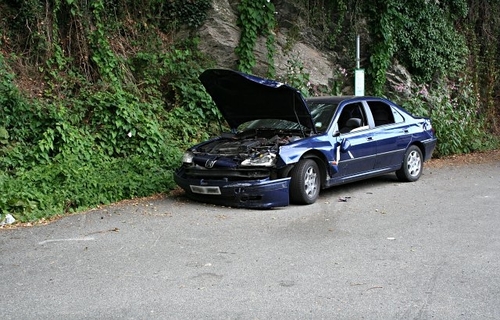
Texas consumers who buy vehicles in state are protected by both the Texas lemon law at the federal Magnuson-Moss Warranty Act. Both differ slightly, but have the basic premise: protecting those who unintentionally purchase defective, malfunctioning vehicles. Not only must the car meet certain milestones before either law comes into play, but the consumer must respond by certain specific deadlines to take advantage of the laws’ protections.
How the Texas Lemon Law Works
The Texas lemon law covers new vehicles purchased or leased in the state of Texas. This includes cars, trucks, vans, motorcycles, all-terrain vehicles, two-rider vehicles and neighborhood electric vehicles. In addition to excluding most used vehicles, the Texas lemon law does not cover repossessed vehicles, non-travel trailers, boats or farming equipment.
The Texas lemon law does not cover problems caused by the owner’s abuse, neglect, unauthorized changes, parts, or components not installed by the manufacturer. This means if the problem you’re claiming makes the car a lemon was caused by you mistreating the car or installing unauthorized aftermarket parts, you’re out of luck.
The Texas lemon law also only covers what are considered “serious defects.” The law defines a “serious defect” as a problem that “substantially impairs the use or market value of the vehicle.” This counts any problem that keeps you from safely using the vehicle, or keeping you from selling it for anything close to what you paid for it. For example, if the car won’t start? That substantially impairs your use of the vehicle. If the brakes malfunction, that substantially impairs your safe use of the vehicle. If the vehicle generates a strong, pervasive odor that won’t go away despite multiple cleaning attempts? You may still use the vehicle, but it substantially impairs the vehicle’s market value.
The Texas Lemon Law’s Tests
A vehicle in Texas must pass one of three tests to be considered a lemon: the four times test, the serious safety hazard test, or the 30 day test.
A vehicle passes the four times test if it’s been at a dealership for repairs two times for the same issue within the first year or 12,000 miles, whichever comes first, and twice more during the first 12 months or 12,000 miles following the first repair attempt without the problem being fixed.
A vehicle passes the serious safety hazard test if the consumer brings the vehicle in for repair of a serious safety hazard once during the first 12 months of ownership or 12,000 miles, whichever comes first, and then once more during the 12 months or 12,000 miles following the first unsuccessful repair attempt.
A vehicle passes the 30-day test if it has been out of service for repair because of problems covered by the original factory warranty for a total of 30 days or more during the first two years or 24,000 miles of ownership without a comparable loaner vehicle offered, and there were two repair attempts during the first year or 12,000 without any success.
Does the Texas Lemon Law Cover Used Cars?
Lemon law attorney Andrew Ross at Allen Stewart P.C. said he often speaks to used car owners hoping the Texas lemon law can help them. Unfortunately, the Texas lemon law offers scant protection for used car owners.
“In general, the Texas Lemon Law does not offer much relief to consumers who purchased used vehicles,” Ross said. “If a consumer is hoping to force the manufacturer to repurchase or replace their used vehicle, the Texas Lemon Law is not going to help the consumer achieve their goal. The only relief that may be afforded is that the consumer may be able to force the manufacturer to repair the problems experienced in the vehicle.”
The Texas lemon law covers consumers who purchase or lease vehicles at real from an in-state dealer as well as anyone else entitled to enforce the manufacturer’s warranty terms. Used cars usually find their way to consumers long after their manufacturer’s warranty expires, denying them lemon law protection.
“In the event the manufacturer’s warranty has expired, it’s possible the consumer may still be able to force the manufacturer to repair the vehicle as long as the problems were complained of to an authorized dealership of the manufacturer while the vehicle was still under the manufacturer’s warranty,” Ross said.
Texas consumers must file their Texas lemon law complaint within six months of the vehicle’s warranty expiring, or 24 months or 24,000 miles following the date of the delivery of the vehicle: whichever comes first.
What if the Texas Lemon Law Can’t Help Me?
Consumers left high and dry by the Texas lemon law may find help in the Magnuson-Moss Warranty Act. The Act, a federal law passed in 1972, supersedes all state laws while following the Uniform Commercial Code’s four year statute of limitations. One important facet of the Magnuson-Moss Warranty Act is how it lets attorneys collect their fees directly from the manufacturer if they prevail in court. This means consumers pay nothing out of pocket.
If you bought a lemon car and its manufacturer won’t help you, you’re not alone and you aren’t out of luck. The attorneys of Allen Stewart, P.C. have decades of experience fighting on behalf of clients just like you, to get you the justice you deserve. Contact us today and get back on the road. Your first call is always free.
